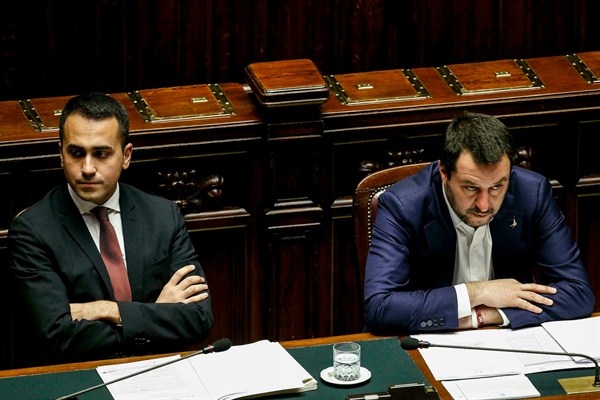BOLOGNA—Italy’s populist government has been in power for all of 13 months and already speculation is rife about its imminent demise. The stability of this rowdy coalition was in doubt from the moment it was formed. How could the anti-establishment Five Star Movement, or M5S, avoid falling out with its aggressive junior partner, the far-right Lega or League, and its leader, Matteo Salvini?
These doubts only grew when Salvini used his first year in office as interior minister and deputy prime minister to boost his own popularity, campaigning rather than governing. In the European Parliament elections at the end of May, the League took 34 percent of the vote, up from under 18 percent in the March 2018 general elections. The M5S, by contrast, collapsed from 33 percent to 17 percent. The League is now the senior partner in the government, although the M5S still has nearly twice as many seats in parliament.
There are many in the League who want to cash in their chips and try and force new elections this fall. Within the M5S, opposition to party leader Luigi Di Maio, Salvini’s fellow deputy prime minister, is growing more vocal. Key members, notably Alessandro Di Battista, a journalist and writer who casts himself as the conscience of the M5S, have been urging Di Maio to return to the party’s roots as an anti-establishment force.

